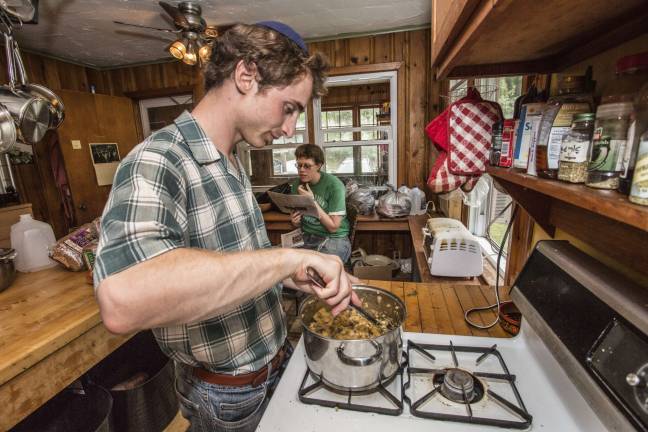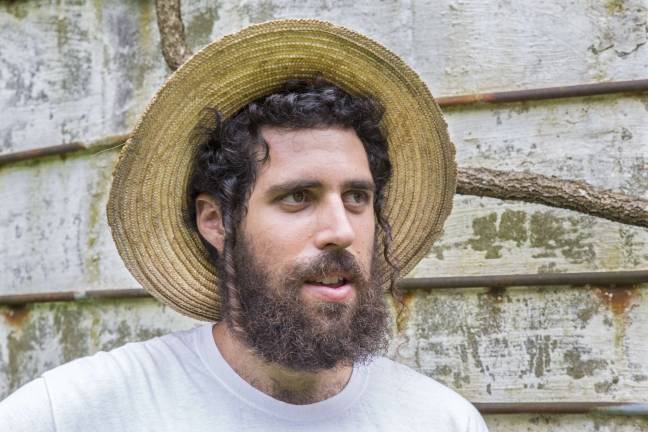Growing a language, organically




Every week, Yisroel Bass, 23, brings a box of organic zucchini to Monroe, where he sells it to a grocery store. Zucchini. Now you know your first Yiddish word. OK, that happens to be an easy one. But communicating can be a challenge in the first couple weeks of the beginners’ immersion course at Yiddish Farm in New Hampton, NY. The 225-acre farm, in its second year of existence, is the only Yiddish immersion program in the world. Students pay tuition to live and work here for a month or two, growing food, cooking meals, and practing Yiddish at least four hours daily through singing, writing, reading, or grammar exercises. “Trying to make sure people don’t speak English is very hard,” said Bass, the farm manager. “You walk into the kitchen and you don’t know the word for anything. What the hell are you going to do?” Make zucchini, I guess. At first, beginning students spend eight hours in the classroom under the instruction of the farm’s co-founder, Naftali Ejdelman, 26. When they know enough Yiddish to understand farm-related instructions, they head out to the vegetable garden in the afternoon, where the crops are labeled in Yiddish. Sarah Wolk, 24, came to the farm this summer knowing no Yiddish. She graduated from the month-long beginner course and is now one of six students participating in the two-month advanced program. She reads the Yiddish Forward. She’s pretty much fluent, said Bass. Bass bristles when asked about the difficulty of reviving a dead language. Although there is no country where the fusion of Hebrew, Aramaic, Slavic and Romance languages is the mother tongue, Yiddish is far from moribund. In fact, Yiddish, which translates literally into “Jewish,” is undergoing a resurgence. The farm is 15 minutes from Kiryas Joel, a Hasidic enclave of 30,000 Yiddish speakers. Last year was the first time since the Holocaust that the number of Yiddish speakers in America has gone up, Bass points out, thanks to the prolific nature of Orthodox families. “Two generations down the line, these numbers are going to quadruple and quadruple,” said Bass. “We see ourselves positioned in a pretty interesting time.”
By Becca Tucker